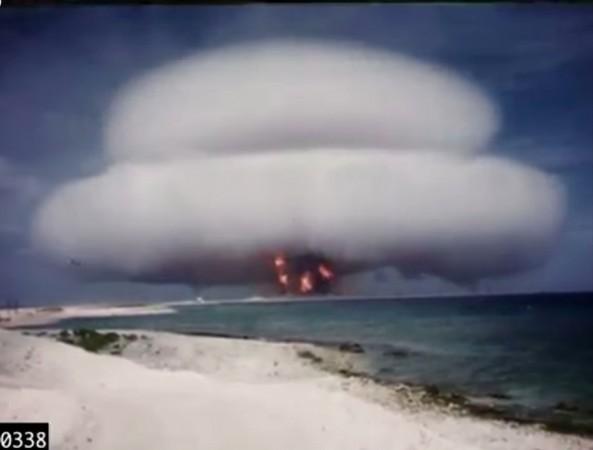A new study conducted by a team of researchers led by Giles Harrison, professor of Atmospheric Physics at the University of Reading, has found that nuclear tests conducted during the time of cold war have affected the rainfall pattern, thousands of miles from the detonation sites. Researchers made this conclusion after analyzing the electric charge released by radiations from the detonations in the 1950s and 1960s.
Effects of radioactivity on clouds
Analysis of historic records from 1962 to 1964 suggested that there was 24 percent more rain on days with more radioactivity. Researchers also noted that clouds were visibly thicker during these days of high radioactivity.

"By studying the radioactivity released from Cold War weapons tests, scientists at the time learned about atmospheric circulation patterns. We have now reused this data to examine the effect on rainfall. The politically charged atmosphere of the Cold War led to a nuclear arms race and worldwide anxiety. Decades later, that global cloud has yielded a silver lining, in giving us a unique way to study how electric charge affects rain," said Harrison, in a recent statement.
Even though the nuclear tests were carried out in remote locations like the Nevada desert, researchers revealed that radioactive pollution spread widely throughout the earth's atmosphere.
It should be noted that the race to develop nuclear weapons was one of the key characteristics during the time of the Cold War, as the world's superpowers tried to proclaim their dominance by developing deadly weapons.
New finding could help climate research
Weather experts believe that this new finding could help in future climate research, as it could help to know how electric discharge influences rain. Cloud-related geoengineering without the use of chemicals can be also achieved with ease using the findings of this study.
These new findings will also help to know more about the typical charges possible in natural non-thunderstorm clouds. Experts believe that triggering rain using electric discharge could also help to solve problems like drought.














